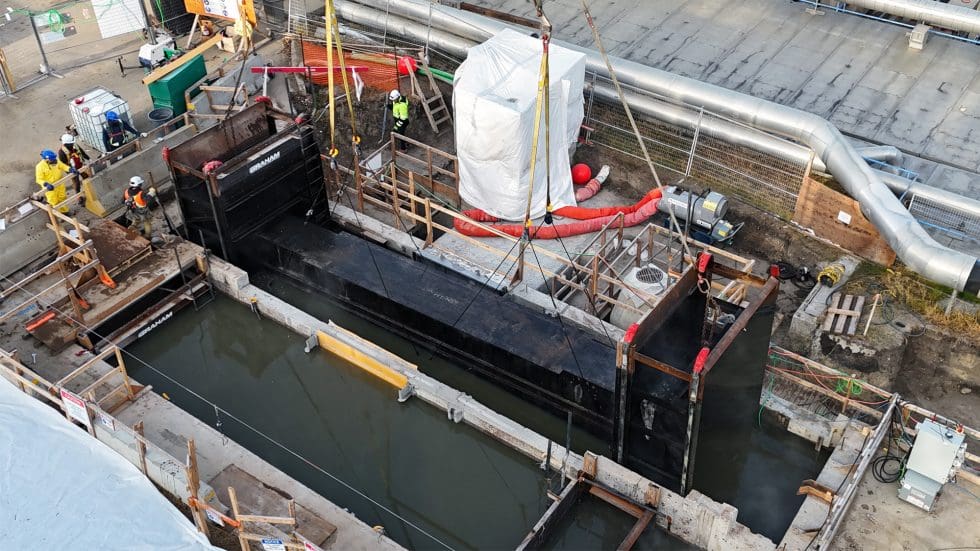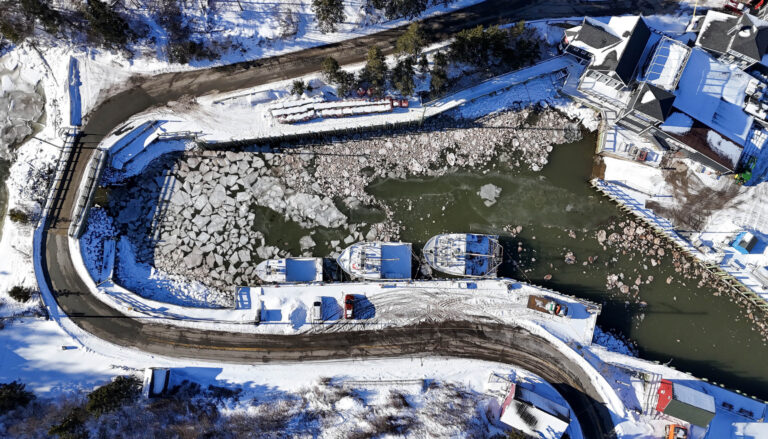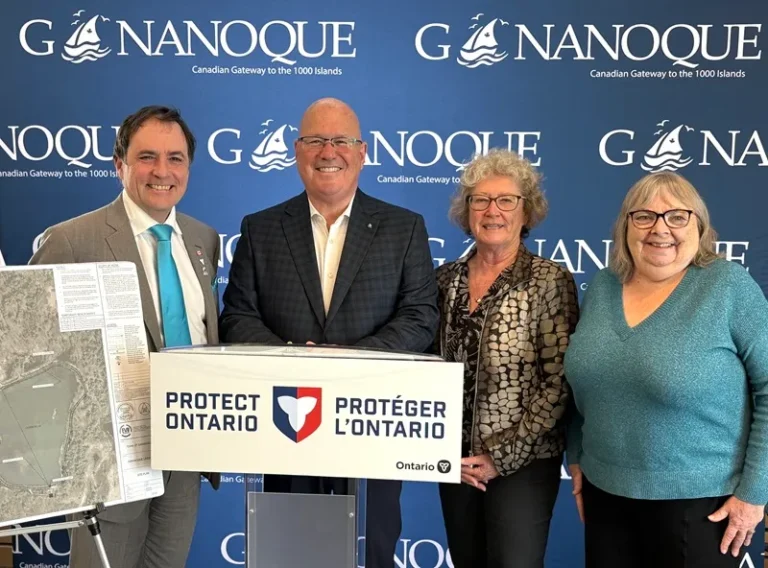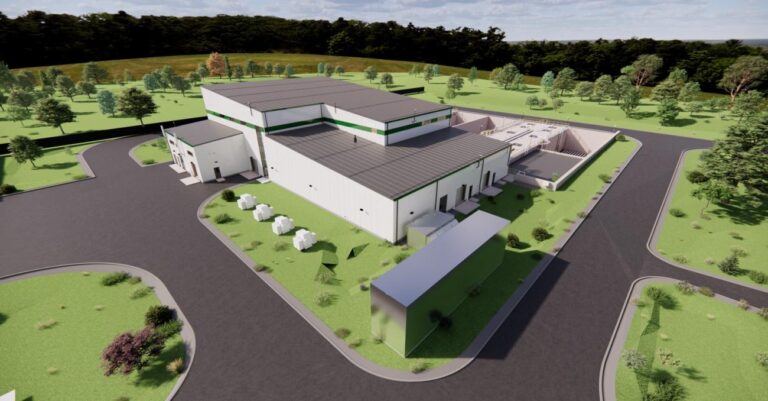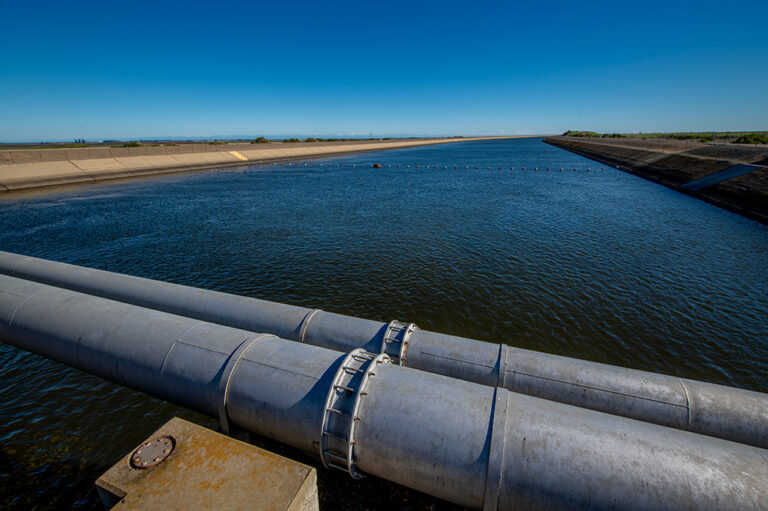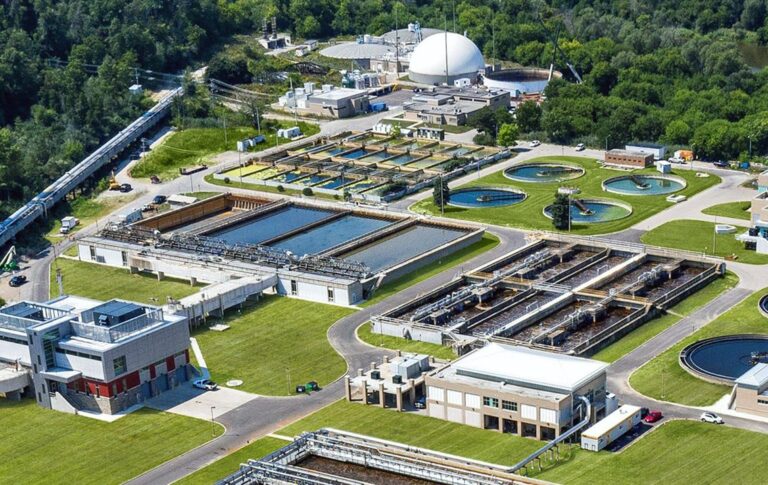A major upgrade to EPCOR’s primary effluent channels at its Edmonton wastewater treatment plant has reached substantial completion, following more than two years of work delivered under an Integrated Project Delivery model.
The channels, which have been in service since the 1950s, play a central role in moving effluent to the facility’s bioreactors. Graham Construction, working with EPCOR and project partners, carried out the rehabilitation in phased segments to keep the facility operating throughout construction.
Work began in June 2023 with modifications to the plant’s bypass chamber, including removal of sections of the roof slab and concrete walls to improve access. Temporary flumes were installed to maintain continuous flow while crews completed concrete repairs, waterproofing, sealing and the installation of permanent stop logs. A new cross-connection was also built between Plant 1 and the North Primary Effluent Channel.
The second phase included construction of a new “hockey stick” channel linking North and South channels to the bioreactors through new connection chambers. Additional stop logs were installed to support flow control.
In the final phase, crews demolished and replaced the feed to Bioreactors 4 and 5 with a new cross-connection. Concrete rehabilitation and waterproofing continued in both channels, particularly around the equalization chamber.
Graham says the IPD model was critical to managing field challenges and keeping the project on schedule. Frequent coordination sessions helped the team respond to issues such as unexpected sludge buildup of up to six feet, rain events and traffic management within the operating plant.
To avoid a continuous bypass of the channels, the team designed a temporary flume system capable of handling peak flows of 420 megalitres per day. The system allowed installation of 14 stop log frames without disrupting operations and accommodated irregularities in the aging concrete structures.
Safety measures addressing hydrogen sulphide exposure and confined-space work included engineered access systems, decontamination procedures, continuous gas monitoring and negative-air systems. Graham reported no major injuries over 16 months of work near open channels.
Final completion of the project is expected by the end of 2025, with closeout anticipated in late 2026. The rehabilitation is intended to support long-term wastewater treatment capacity and reliability for the Edmonton region.
Featured image: Graham Construction

